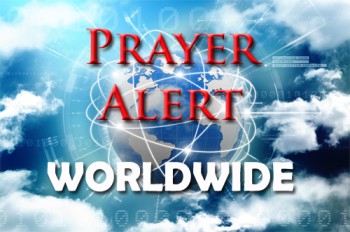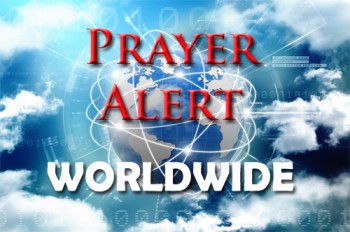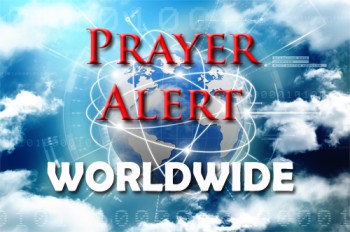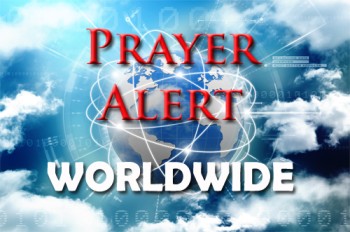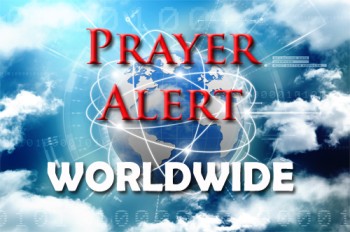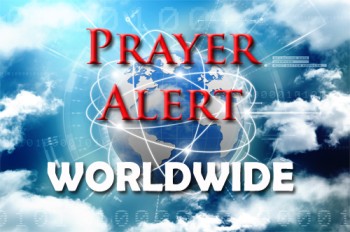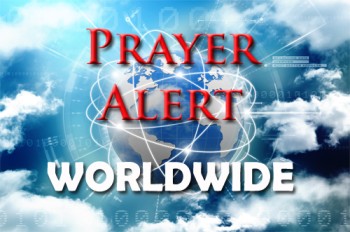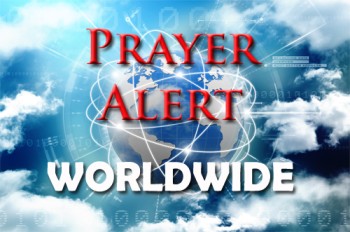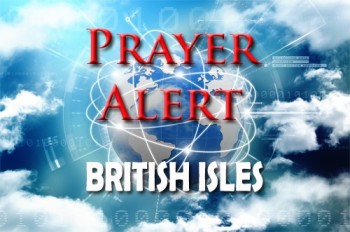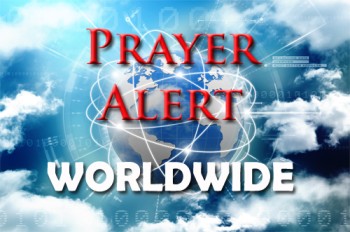
Displaying items by tag: Gaza
Gaza: humiliation and trauma after Rafah crossing reopens
When the Rafah border crossing was reopened on 2 February, Palestinian women returning to Gaza have described a journey marked by fear, humiliation and deep emotional trauma. Of around fifty people expecting to cross from Egypt on one day, only twelve - three women and nine children - were ultimately allowed through. Several women reported being separated from their children, blindfolded, handcuffed and interrogated for hours by Israeli forces who control entry at the crossing. One woman said she was threatened with detention and pressured psychologically, despite explaining she only wished to return home and see her children. Basic belongings, food and water were confiscated, adding to the exhaustion of an already gruelling journey. Meanwhile, critically ill patients seeking medical treatment abroad were largely denied passage, leaving tens of thousands waiting inside Gaza. There are also reports that Israel is pressurising NGOs working in Gaza: see
Gaza: infant dies of hypothermia in terrible weather
A humanitarian tragedy is unfolding in Gaza as a Palestinian infant has died from hypothermia amid severe winter conditions and ongoing restrictions on aid. Local health officials reported that two-week-old Mohammed Khalil Abu al-Khair succumbed to extreme cold after families were left without adequate shelter, heating, clothing, or fuel. Israel’s prolonged military campaign has destroyed much of Gaza’s infrastructure, forcing hundreds of thousands to live in tents or damaged buildings unable to withstand storms and freezing temperatures. Recent severe weather has flooded shelters, collapsed structures, and caused further deaths. Humanitarian agencies warn that Israeli restrictions on aid deliveries, including limits placed on UNRWA, are preventing lifesaving supplies from reaching civilians at scale. The child’s death underscores how the denial of basic necessities has turned winter itself into a lethal threat, particularly for children and other vulnerable civilians.
Gaza: Christians face an almost impossible choice
Gaza’s small Christian community, long rooted in the land where their faith began, is now confronting an existential crossroads. As a fragile ceasefire wavers and destruction remains widespread, believers like Elias al-Jalda face the stark question of whether their community can survive. With homes destroyed and more than two years spent sheltering in churches - some of which were themselves struck, causing tragic loss of life - daily existence has become a struggle for food, water and safety. Yet amid the devastation, they have discovered a profound solidarity, forming close-knit bonds in shared suffering. Many are choosing to leave while they can, echoing a wider regional trend in which ancient Christian populations across the Middle East have dramatically dwindled. Still, Elias and others hold on to hope, believing that Christian presence should remain in the birthplace of their faith.
Gaza: ceasefire fragile after Israeli airstrikes kill 100+
On 29 October, Hamas reported that Israeli airstrikes in Gaza had resulted in at least 104 Palestinian deaths, including 46 children. Israel's defence minister accused Hamas of an attack in Gaza which killed an Israeli soldier, and of breaching the terms on returning deceased hostages' bodies. Although Hamas denied involvement in the attack, asserting its commitment to the ceasefire, the IDF said it had targeted what it described as ‘terror targets and terrorists’, killing numerous individuals, including thirty armed group commanders. The strikes caused significant destruction, hitting homes, schools, and residential blocks: each side has accused the other of ceasefire violations. Despite the violence, Donald Trump downplayed the likelihood of renewed hostilities, supporting Israel's right to retaliate. The conflict shows the fragile nature of the ceasefire and the ongoing volatility in the region – which has also been highlighted by the call by Amnesty International to investigate whether a US airstrike on Yemen in April was a war crime. See
Gaza: conflicting emotions and remaining challenges as ceasefire takes hold
Israel and Hamas have taken a crucial first step toward ending the devastating two-year war in Gaza, releasing hostages and prisoners under a US-brokered ceasefire. The exchange brought immense relief and celebration across Israel and Gaza, even as both sides remain wary. Yet, the deeper challenges - Hamas’s refusal to disarm, Israel’s reluctance to accept a Palestinian state, and questions over Gaza’s future governance - still threaten the deal’s stability. For many, the sight of freed hostages reuniting with loved ones offered a rare moment of shared humanity amid years of grief. In Gaza, war-worn families welcomed returning prisoners but faced the grim reality of shattered homes and a crippled economy. As Donald Trump signed a declaration for peace, witnessed by twenty world leaders (see ), both Israelis and Palestinians have to grapple with the cost of vengeance and the fragile hope of renewal. The region stands at a crossroads between restoration and relapse into conflict.
Gaza: what we know so far about ceasefire agreement
After three days of indirect talks in Egypt, Donald Trump announced that Israel and Hamas have ‘signed off’ on the first phase of his twenty-point peace plan to end the Gaza war. The agreement, expected to be approved by Israel’s cabinet, includes an immediate ceasefire and the release of all remaining living hostages - around 20 people - within 72 hours. Israel will begin withdrawing troops to a line controlling roughly 53% of Gaza, while Hamas will return the bodies of 28 dead hostages. In exchange, Israel will release about 250 Palestinian prisoners serving life sentences and 1,700 Gaza detainees, but not including key figures like Marwan Barghouti. Hundreds of aid trucks will begin entering Gaza daily to address famine conditions. Later phases of the plan envision Gaza’s demilitarisation, temporary rule by Palestinian technocrats under an international ‘Board of Peace’ chaired by Trump, and eventual transfer to a reformed Palestinian Authority - points that remain deeply contentious between Israel and Hamas. Earlier in the week, on 7 October, 30,000 gathered in Tel Aviv in an emotional event marking the second anniversary of Hamas’s attacks: see
Gaza: Hamas likely to reject Trump’s peace plan
A senior Hamas leader has said the group is likely to reject Donald Trump’s peace plan for Gaza, arguing it favours Israel while ignoring Palestinian concerns. The plan requires Hamas to disarm, surrender its weapons, and release all hostages at once - conditions the group deems unacceptable. It also proposes an International Stabilisation Force, which Hamas views as a foreign occupation. While Benjamin Netanyahu publicly accepted the plan, he has already contradicted key provisions, insisting Israel must retain a military presence in Gaza and pledging to resist a Palestinian state. Palestinians in Gaza expressed desperate support for the proposal - not out of agreement with its terms, but in hopes of ending war, devastation, and famine. Critics warn that rejection could allow Israel to intensify its campaign with international backing. More than 66,000 deaths have been reported in Gaza since October 2023.
Israel has committed genocide, says UN inquiry
A UN commission of inquiry has concluded there are reasonable grounds to believe Israel has committed genocide against Palestinians in Gaza since the 2023 war with Hamas began. The 72-page report cites four of the five acts defined under the 1948 Genocide Convention - killing, causing serious harm, deliberately inflicting life-destroying conditions, and preventing births - along with statements by Israeli leaders, as evidence of genocidal intent. It highlights widespread civilian deaths, collapsed infrastructure, repeated displacement, and a UN-declared famine. Commission chair Navi Pillay said speeches by Benjamin Netanyahu and other officials, combined with Israel’s military conduct, support the inference of intent to destroy those living in Gaza in whole or part. The commission also warned other nations of their legal duty to prevent and punish genocide, noting potential complicity if they fail to act. Israel’s government rejected the findings as false and biased, arguing that its operations are targeting Hamas in self-defence and comply with international law. Meanwhile, the long-awaited offensive by the Israeli military against Gaza City has begun: see
Scottish government halts cash for arms to Israel, flies Palestinian flag
Scottish first minister John Swinney has announced a series of measures in response to the crisis in Gaza, declaring that Israel’s actions 'constitute genocide'. The Scottish government has paused new awards of public money to arms companies supplying the Israeli military; Swinney also confirmed that Palestinian flags are now flying at government buildings. He urged the UK government to recognise the state of Palestine and withdraw from its free trade agreement with Israel immediately. Scottish Conservatives called the Gaza conflict a 'blight on humanity'; Scottish Labour’s Anas Sarwar condemned Benjamin Netanyahu as a 'war criminal'; Greens welcomed the action but sought a broader boycott; and Liberal Democrats pressed both governments to help more injured children from Gaza receive treatment in Scotland. Swinney insisted Scotland will continue offering practical humanitarian support within its devolved powers. See https://www.independent.co.uk/news/uk/crime/crown-prosecution-service-london-southwark-palestinian-cardiff-b2819723.html
Israel / Gaza: attack on hospital condemned, famine officially declared, Pope’s plea
A deadly double strike on a hospital in Gaza has drawn sharp international condemnation. At least twenty people were killed, including five journalists and four health workers, when two consecutive strikes targeted the facility. The UN, describing the attack as ‘unacceptable’, called for those responsible to face justice. The IDF claimed the strikes were aimed at a Hamas-operated camera, but did not explain why a second strike was deemed necessary. There have been escalating protests inside Israel, with families of hostages and supporters demanding that Netanyahu agree to a ceasefire deal. The humanitarian crisis is deepening across Gaza: a UN-backed body has confirmed that a famine is taking place in Gaza city (a claim described as an ‘outright lie’ by Israel), and most of the territory’s population faces dire shortages of shelter, food, and medical care after months of war. Pope Leo XIV has joined the Latin and Greek Orthodox patriarchs of Jerusalem in a powerful plea for an immediate end to the war: see

